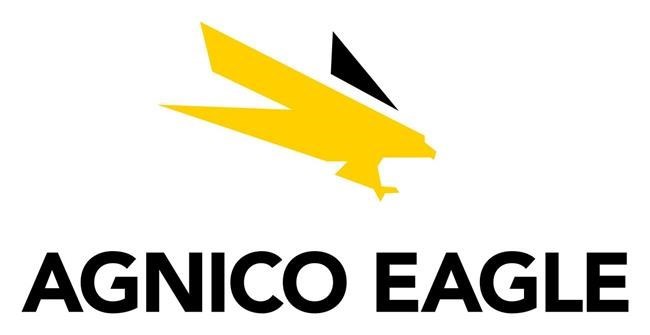TORONTO — The chief executive of Nunavut gold miner TMAC Resources Inc. says Ottawa's decision on Dec. 21 to block its sale to a Chinese company ruined his Christmas break, but turned out to be a blessing in disguise.
On Tuesday, TMAC announced a deal to be sold to Canadian gold miner Agnico Eagle Mines Ltd. for $286.6 million, a nearly 26 per cent jump over the $230 million offered by China's Shandong Gold Mining Co. Ltd.
"You can't choose when these things happen," said TMAC CEO Jason Neal in an interview, recalling the past two weeks of negotiations that led to the deal.
"I didn't expect the government to block it four days before Christmas, but it actually turned out to be a really good thing."
TMAC shares jumped 40 per cent from Monday's close of $1.57 on Tuesday to match Agnico Eagle's offer of $2.20 per share, while Agnico shares dropped as much as 3.3 per cent or $3.22 to $92.99.
The deal, expected to close in early February, is backed by all of TMAC's major shareholders including Shandong, which bought a 9.2 per cent stake last year at $1.75 per share to provide money TMAC needed to cover the cost of its seaborne delivery of supplies to its remote mining project at Hope Bay.
Shandong announced its takeover offer last May after TMAC put itself on the sales block in an attempt to improve its financial position in view of operational issues and a looming debt maturity date.
The friendly deal had received Chinese regulatory approvals and TMAC shareholders voted 97 per cent of their shares in favour of it in June, but the federal cabinet ordered a national security review under the Investment Canada Act in October.
The companies said the new deal has to be approved by a court and clear a Competition Act review, but will not require another shareholder vote because it replaces the Shandong transaction.
The purchase will add a third gold mining project in Nunavut for Agnico Eagle, which operates the Meadowbank and Meliadine projects in the Arctic territory. It also has mines in Central Canada, Finland and Mexico and expected to produce about 1.7 million ounces of gold in 2020.
Agnico Eagle CEO Sean Boyd said in an interview his company took part in TMAC's strategic review, but concluded the timing wasn't right for a bid last year.
He defended his company's higher offering price, noting that the Hope Bay mine operation was struggling in the second quarter of 2020 when Shandong made its bid.
"I think it's a fair price," he said. "Conditions have changed at the site, operations have improved and we also wanted to take advantage of the opportunity to utilize the structure that was already approved by the TMAC shareholders, which allows us to close the deal fairly quickly."
In a note, National Bank analyst Mike Parkin agreed the price was reasonable when compared to other gold deals in top-tier mining jurisdictions.
Boyd said Agnico Eagle hopes to advance exploration and expansion at Hope Bay to increase production beyond the current constrained level of about 100,000 ounces per year, without being specific.
Output at Hope Bay has been affected by workforce cuts made to save money and because of the COVID-19 pandemic, he pointed out. He added he hopes Agnico Eagle's other Nunavut mines can soon recall local workers sent home in March to avoid spreading the virus.
Neal said Tuesday the federal government's rejection of the Shandong deal shows that the North is important to Canada and called on Ottawa to invest more in infrastructure.
"We'll certainly to talking to our partners in the federal and Nunavut governments to see how we can look at things like renewable energy, transportation infrastructure, communications infrastructure, internet speed and service," agreed Boyd.
"Those are things we think can only help the investment climate in the future."
This report by The Canadian Press was first published Jan. 5, 2021.
Companies in this story: (TSX:AEM, TSX:TMR)
Dan Healing, The Canadian Press



